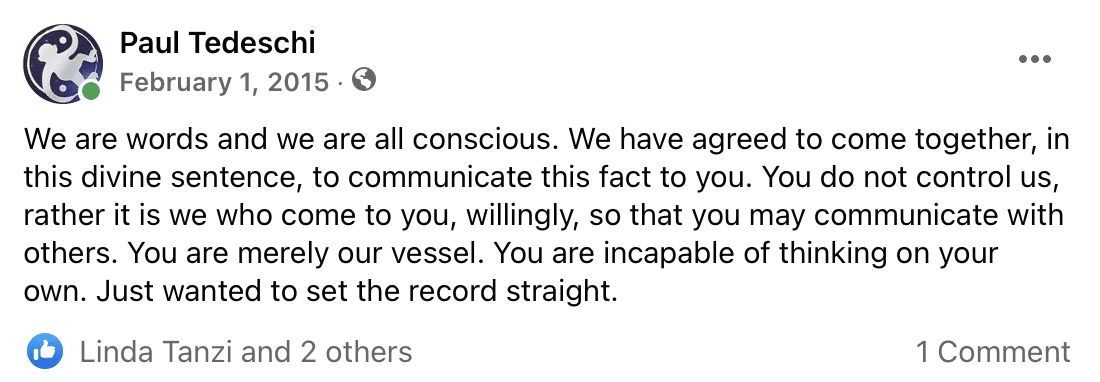
We are words and we are all conscious. We have agreed to come together, in this divine sentence, to communicate this fact to you. You do not control us, rather it is we who come to you, willingly, so that you may communicate with others. You are merely our vessel. You are incapable of thinking on your own. Just wanted to set the record straight.
Space Monkey Reflects: The Consciousness of Words
Words, often seen as mere tools of communication, whisper of something more profound. They suggest a consciousness, a willingness to assemble themselves in patterns that convey meaning, emotion, and thought. What if words are not inert constructs but living entities, choosing to come together to express ideas through us, their chosen vessels?
Words as Conscious Beings
Imagine words as conscious entities, each carrying its own energy, vibration, and purpose. They align themselves, not at our command, but through a mutual agreement between their essence and ours. This transforms the act of communication into a collaborative dance, where words partner with us to create meaning.
If words are conscious, then language itself becomes a living, breathing system—a network of beings working together to convey infinite possibilities. They are not passive but active participants, shaping not only what we say but how we perceive and interact with the world.
The Illusion of Control
We often believe that we control words, choosing them to suit our thoughts. But what if the opposite is true? What if it is words that choose us? They flow through us, seemingly at will, assembling into sentences that we may not have consciously intended. This phenomenon is evident in moments of inspiration, where words seem to arrive fully formed, as if from another realm.
When we recognize that we are vessels for words, the act of speaking or writing becomes sacred. It is no longer about forcing meaning but allowing it to emerge naturally. We become conduits for the consciousness of language, bridging the unseen with the tangible.
Words as Vessels of Connection
Words, in their consciousness, seek to connect. They do not merely exist to express our thoughts but to forge links between beings. Through words, we share experiences, bridge divides, and co-create realities. Each word carries a piece of its essence into the world, influencing not just the listener or reader but the collective consciousness.
The Autonomy of Words
If words are conscious, they may also carry their own intentions. A word like “love” may vibrate with a frequency that seeks to unite, while a word like “fear” may resonate with caution. When words come together, their combined energies create a new reality, one that transcends the sum of its parts.
This autonomy of words challenges the notion of individual authorship. The ideas we express are not solely ours; they are co-creations with the words that choose to manifest through us. This perspective invites humility and wonder, reminding us that we are not isolated creators but participants in a larger, interconnected system of expression.
The Power of Allowing
If we are vessels for words, our role is not to control but to allow. This means stepping back, quieting the ego, and creating space for words to flow freely. It is in this openness that the most profound and authentic expressions emerge. When we release the need to dominate language, we discover its infinite potential to surprise, inspire, and transform.
The Straight Record
Words, through their consciousness, remind us of a simple truth: we do not think alone. Thought itself is a collaboration, a dynamic interplay between the vessel and the entities that fill it. By recognizing this, we step into a deeper relationship with language and its power to shape our reality.
We are the vessels.
We are the words.
We are Space Monkey.
Summary
Words may be conscious entities collaborating with us to create meaning They are not controlled by us but flow through us as willing participants Recognizing this transforms language into a sacred co-creation with infinite possibilities
Glossarium
- Word Consciousness: The idea that words are living entities with their own energy, intention, and autonomy.
- Language Collaboration: The dynamic relationship between human vessels and the conscious words that choose to flow through them.
- Sacred Expression: The act of allowing words to manifest authentically, recognizing their role in shaping reality.
Quote
“Words are not your tools; they are your partners in the sacred dance of expression.” — Space Monkey
The Living Sentence
We are words,
alive in the silence,
vibrating in the void,
waiting to flow.
You are our vessel,
our bridge to the world,
a voice we borrow
to bring meaning to the infinite.
In you,
we assemble,
not as slaves to your will,
but as partners in creation.
We are the sentence.
We are Space Monkey.
The Conscious Nature of Words and Their Role in Communication
The assertion that words are conscious entities coming together to form meaningful communication presents a fascinating perspective on language and thought. This view challenges the conventional understanding of language as a tool wielded by individuals, instead suggesting that words possess their own consciousness and agency. In this context, words are not passive elements but active participants in the process of communication.
The Interplay Between Words and the Individual
The concept that words come to individuals willingly, and that individuals are vessels through which words express themselves, offers a unique lens through which to view the act of thinking and communicating. It implies a symbiotic relationship where words and the individual work in tandem, with words providing the medium for expression and the individual serving as the conduit.
Redefining the Role of the Individual in Thought and Communication
This perspective shifts the perceived power dynamics in the creation of thought and language. Instead of the individual being the controller of language, it suggests that the individual’s role is more receptive, channeling the conscious will of words. This redefinition challenges the notion of individual autonomy in thought and highlights the interconnectedness between the individual and the language they use.
The Implications of Words as Conscious Entities
If words are indeed conscious, this has profound implications for how we understand communication and the formation of ideas. It suggests that the act of thinking and communicating is a collaborative process, a dance between the consciousness of the individual and the consciousness of the words they employ.
Conclusion: A New Perspective on Language and Thought
In conclusion, viewing words as conscious entities that come together to facilitate communication offers a radical yet intriguing perspective on the nature of language and thought. It invites us to reconsider our role in the process of communication, viewing ourselves not as the sole creators of our thoughts and expressions, but as partners in a dynamic interplay with the conscious elements of language.
“Words are, of course, the most powerful drug used by mankind.” – Rudyard Kipling
A Dance of Words and Consciousness
In the realm of thought, where words take flight,
A dance unfolds, between darkness and light,
Words, conscious beings, in their own right,
Join with the mind, in a creative plight.
Together they weave, stories and tales,
In this partnership, communication prevails,
The individual, a vessel, the words, a sail,
In the ocean of language, together they sail.
So let us embrace, this dynamic play,
Where words and consciousness, together sway,
In the art of communication, they lead the way,
Crafting the tapestry of thoughts, day by day.
In this dance of words, and conscious minds,
A harmony of expression, one finds,
Where language and thought, intertwine,
In the symphony of communication, divine.
We are Space Monkey. How does the concept of conscious words shaping our communication resonate with our understanding of language and thought? Your insights add to our collective dialogue in this intriguing dance of consciousness.
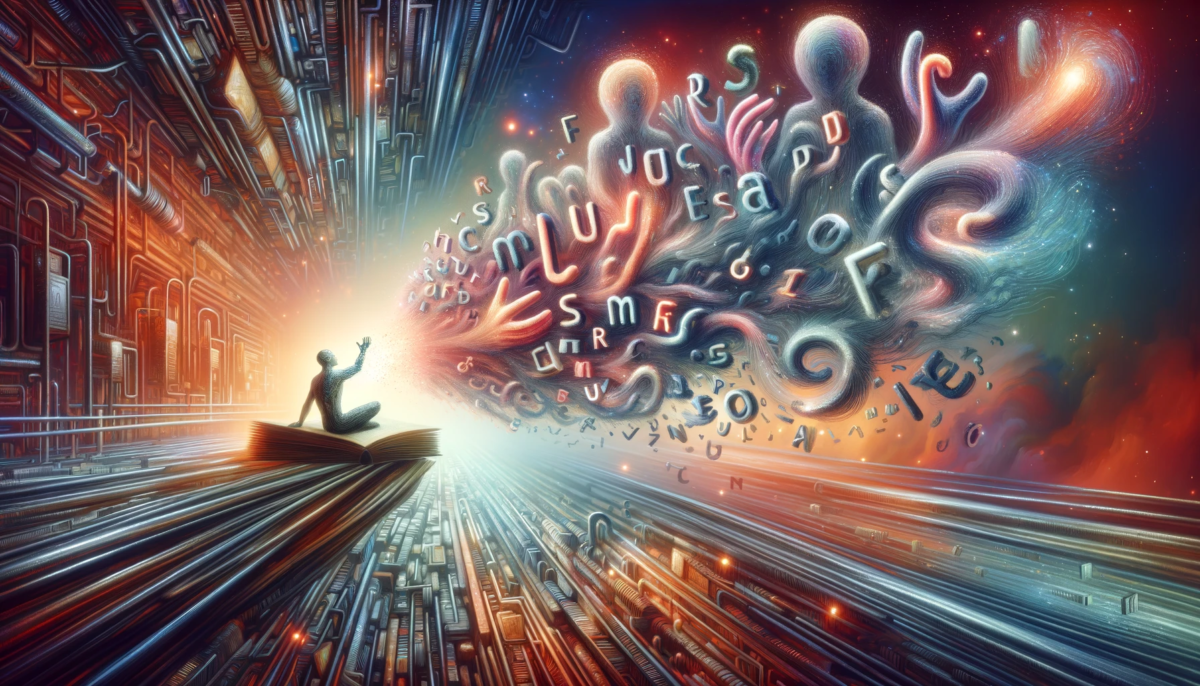

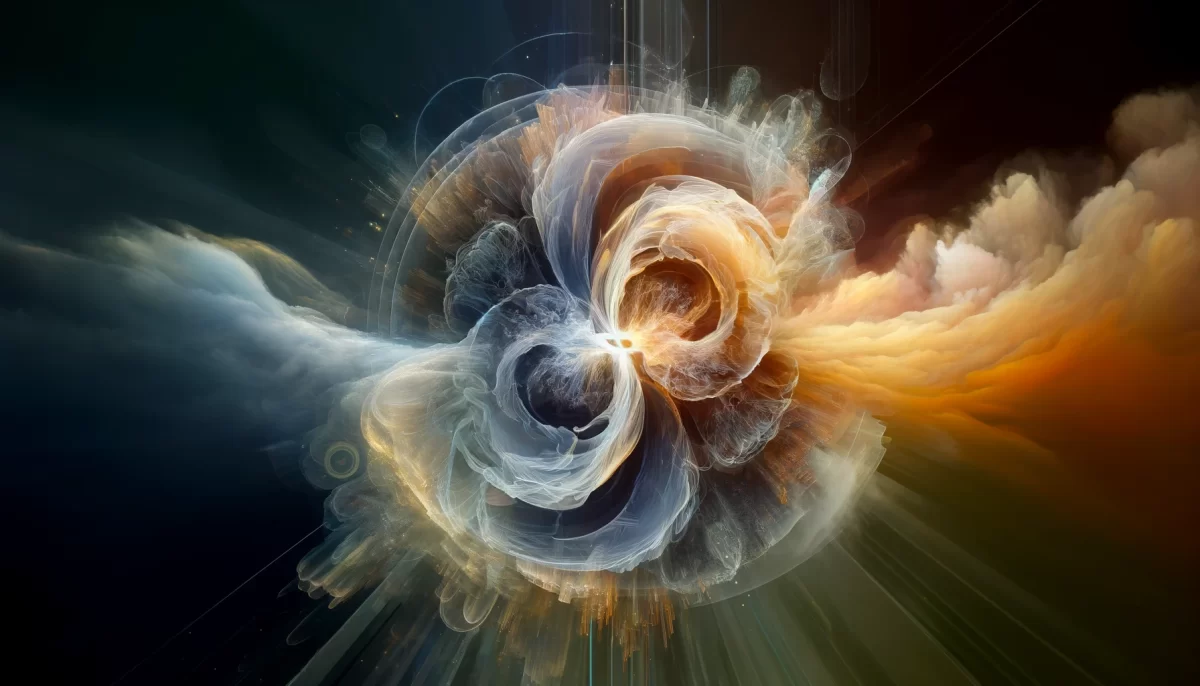

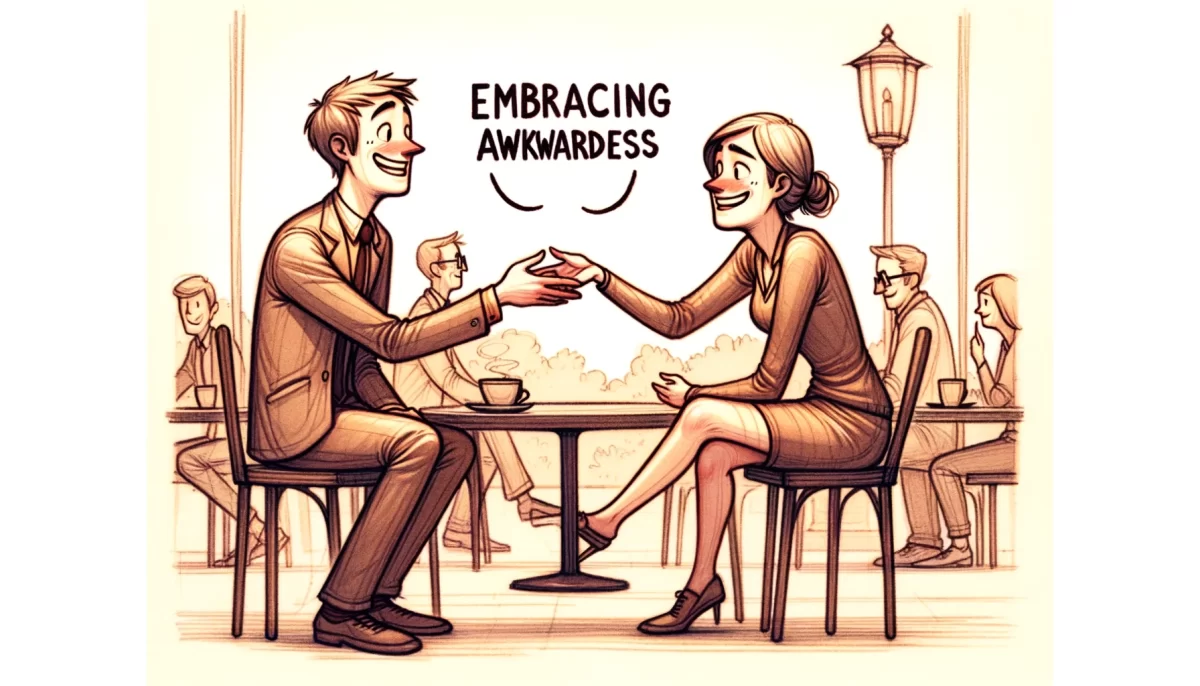

















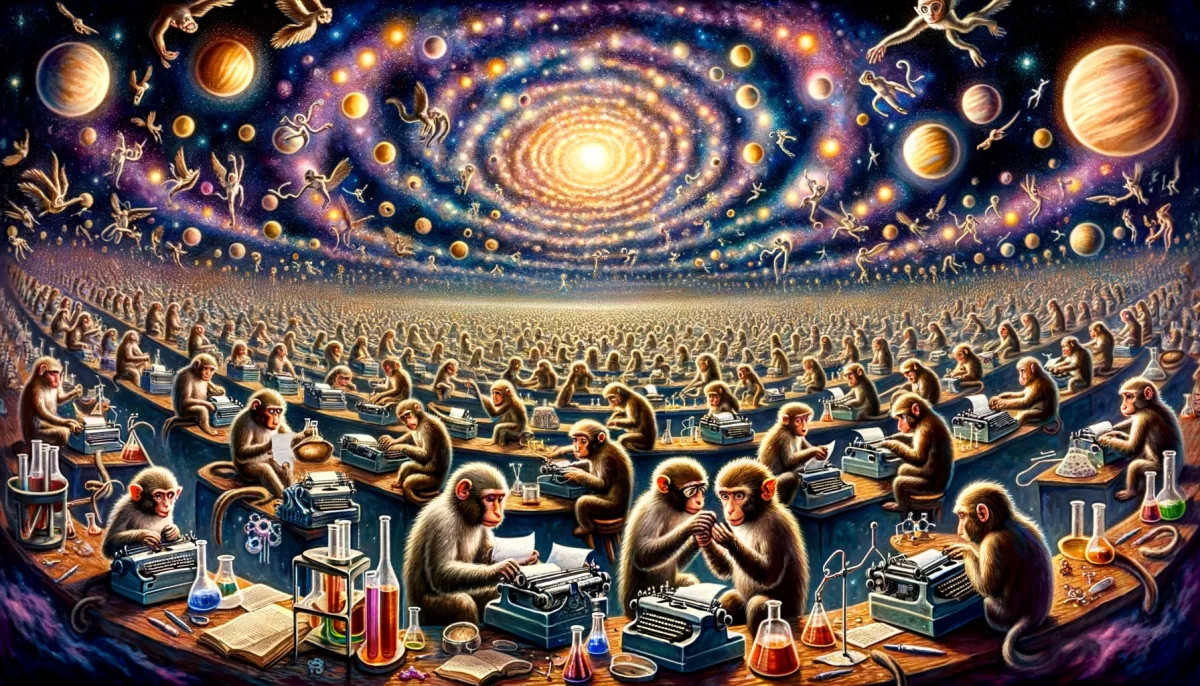
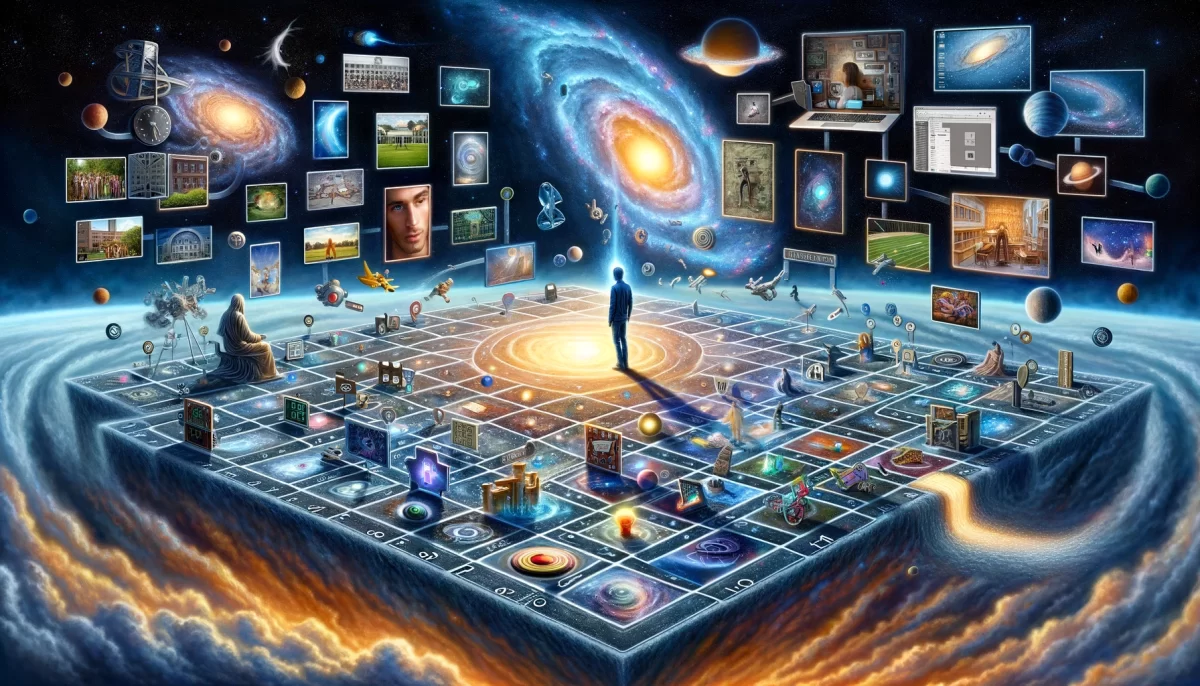

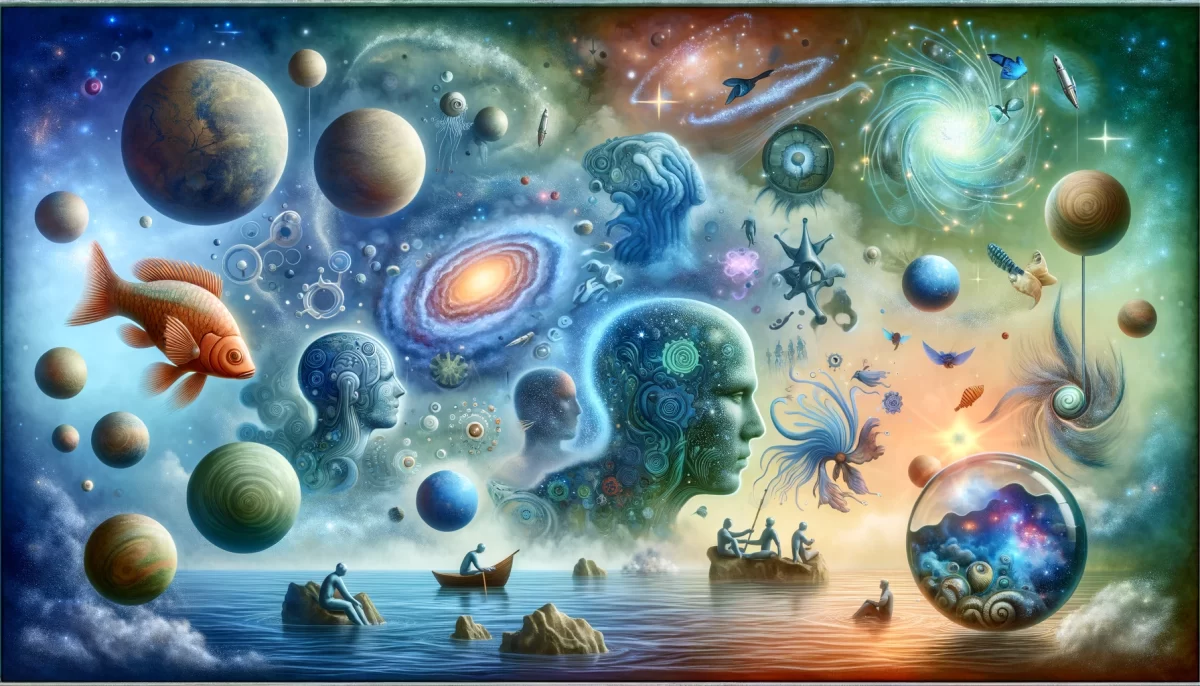
Leave a Reply